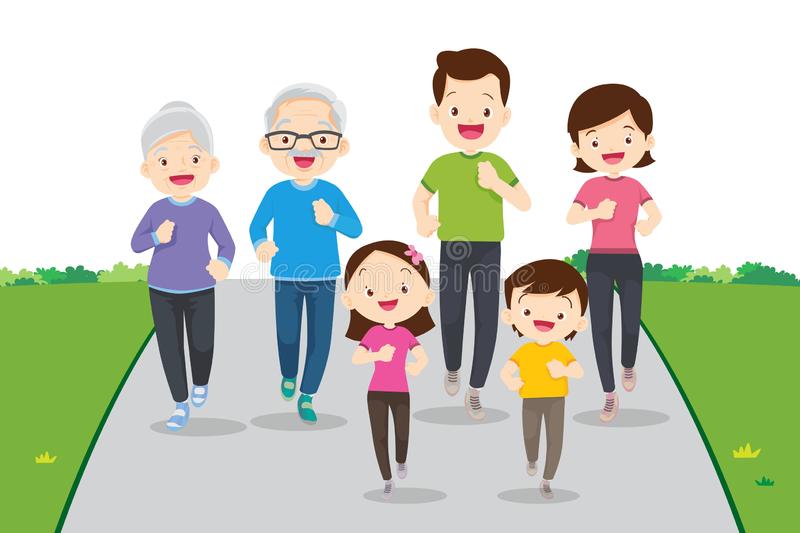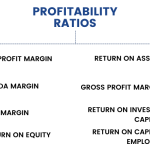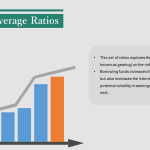
Breathtaking view of Sunnylvsfjorden fjord and famous Seven Sisters waterfalls, near Geiranger village in western Norway.
A happy retirement is no longer really about sitting with your feet up and watching the rest of the world whiz by. Many people now think that retirement is a time for embarking on one of life’s greatest adventures. This is the time to do what you want with the experience-laden good sense to appreciate it.
Here are 35 retirement tips that can help you have a really good retirement. Make this the best time of your life!
Set Purpose and Meaning of Retirement
Make every day meaningful. People who have a sense or purpose or direction in life outlive their peers. In fact, people with a sense of purpose had a 15 percent lower risk of death, compared with those who said they were more or less aimless. And it didn’t seem to matter when people found their direction. It could be in their 20s, 50s or 70s — even when controlled for other factors that affect longevity like age, gender and emotional well-being. The study found that a sense of purpose led to a longer life.
Plan the Retirement
Most people have lived their lives day to day, month to month, year to year. However, retirement is the time to have the best plan possible. You want to spend this time of your life doing what you want to do and you want to make sure you have the finances and wherewith to achieve what is important.
Make Friends

Perhaps the best way to plan for retirement is to visualize your future- really think about the details of who you will be, where and why. Being able to imagine now who you will be in the future and what your needs and desires will be at that time is perhaps the most important aspect of planning.
Think Health Not Wealth
More than 80% of today’s retirees say health is the most important ingredient for a happy retirement, meaning that the majority value good health even over financial security. So, the best retirement plan involves not just your finances but also ways to stay mentally and physically healthy. Gardening, walking, joining a gym, eating healthy are all proven ways to stay physically healthy. Staying vital, having a purpose and challenging yourself mentally are great ways to maintain your mental health.
Be Volunteer and Feel Great
If you are looking for meaning in retirement, volunteering might be something to try.
Make Exercise Fun

Try making exercise something you look forward to instead of something you have to do. Instead of walking (trudging) on a treadmill, take walks through the park or go for mini hikes. Listen to music or — better yet — bring a friend along and talk and laugh as you get the heart rate going. Best of all, there is a bonus to the fun. Those who think they are having fun while exercising end up eating less than those who are doing it for exercise.
Make a habit of Fast Walking
Many research studies have found that how fast you walk after age 60 is a good gauge of longevity. Apparently, your walking speed can predict dementia, shorter life spans and depression.
Think Income Not Investments
It is more important to estimate and plan for your retirement income needs than worry about investments and how much you need for retirement. Dividing your income needs into three categories:
- Minimum guaranteed retirement income — This category is for how much income you need to maintain your life at the bare minimum. Your retirement assets should be allocated to guarantee this income for as long as you live.
- Flexible income — This category is for how much income you would like to live at your desired lifestyle. Income for this category should come from conservatively invested assets.
- Nice to haves — You can take some risks with investments in this category.
The best retirement plan insures that you have enough income to cover your expenses.
Don’t Overlook Taxes
When it comes to your retirement planning, saving, investing and plotting how to spend your free time are at the top of the list. How much you will have to pay in taxes after retirement may be the last thing on your mind, but taxes can be a bigger swing in your wealth than investment returns.
Keep a Routine and Structure
It can be difficult figuring out just what to do with your time once the 9 to 5 is over and done. Retirement is a major life change, and not all of it is fun. But with a schedule, you can help avoid the boredom and restlessness that comes with switching from a busy life to one where busyness only happens because you want it to.
Studies have shown that a structured life is one of the keys to happiness. Work usually imposes a schedule and structure on your life. When you retire, you are faced with days and evenings at your leisure. While you may find this novel and a bit exciting, you may want to define some specific routines to maintain order and structure.
Choose the Best Places to Retire

While it is possible that you already live in the best place for you, it is also possible that there is a better place for your retirement. Best of all, relocating may give you more money for retirement expenses if you manage to downsize or move to a more economical location.
Retirement doesn’t have to mean that you’ll stay in the same house where you’ve always lived. Downsizing can free up your time. And moving to a 50+ community can surround you with like-minded people with similar interests. There’s less home maintenance, too.
Make Your Travel Dreams a Reality
According to surveys of NewRetirement users, knowing how to have a good retirement typically involves figuring out how to travel. Travel is clearly the most popular and desired pursuit for this phase of life. From day trips by car to round the world journeys, retirees have wanderlust! Anything is possible with the right prioritization. If travel is what you have always dreamed of. Achieving what you want out of retirement can be a matter of setting a goal and then prioritizing that goal above everything else.
Think Positively About Ageing
It has found that when older adults think of getting old as a positive experience — being about wisdom, realisation and satisfaction — then they:
- Function at a higher level
- Live 7.5 years longer
- Are more likely to eat well, exercise and avoid vice
Avoid Retirement Depression
A study published in the Journal of Population Ageing found that those who were retired were about twice as likely to report feeling symptoms of depression than those who were still working. And, research from the London-based Institute of Economic Affairs found that the likelihood that someone will suffer from clinical depression actually goes up by about 40% after retiring.
Spend Time with the Grandkids

Grandparents who were able to both give and receive support from grandchildren are less likely to be depressed. In fact, “the greater emotional support grandparents and adult grandchildren received from one another, the better their psychological health,” If you have grandkids, spending active play time with them can help you stay healthier. Active play doesn’t have to mean that you’ll climb a tree, but you can play other games and go on outings together.
Protect Yourself from Fraud
Seniors are an all too common target of fraud. Approximately 1 in 10 aged 60+ have experienced some form of elder abuse. Some estimates range as high as 5 million elders who are abused each year. One study estimated that only 1 in 14 cases of abuse are reported to authorities.
Stay Married- especially if You are a Man

Marriage is good for you, and so are long-term relationships. This Psychophysiology study points out that while stressful marriages are detrimental as we age, strong relationships with a partner help in nearly every aspect of life. Additional research from Harvard Medical School found that men who have marital partners live longer than men without spouses. Even though you might spend every day together once you retire, date night is something different and special.
Devote Time to Retirement Planning- Even After You Retire
Most people spend more time buying a TV, making a restaurant reservation and planning a vacation than they do planning their retirement. Planning, assessing and updating your retirement plans should be on your monthly checklist- even after you retire. It is important to check in with your budget and investments and adjust as necessary.
Think Beyond Funds and Bonds
For some retirees, it may make sense to think beyond mutual funds and bonds for investment choices.
Spend Your Savings (Safely)
You want to have a clear plan in place for making your savings last, but experts are finding that many of today’s retirees simply aren’t spending enough. There are so many questions. Good news: the Stanford Center on Longevity in collaboration with the Society of Actuaries (SOA) has some answers. They analyzed 292 retirement income strategies and are recommending the “spend safely in retirement strategy” as the best way to spend in retirement.
Adjust to Turning Your Perspective Upside Down
Retirement is a big deal. Both your lifestyle and your finances do an almost 180. Your time is spent in leisure not work and you go from earning money to spending. It is challenging to go from a focus on accumulation (saving, saving, saving) to spending (efficient use and drawdown of your assets).
Be Social

You may be retired, but working on creating and maintaining friendships is one of your most important “jobs” as a retired person. Research abounds on the benefits of being social as we age. The links between healthy social relationships and better health are well established. When the social activities are linked to physical exercise, even more benefits are achieved. You need people you can rely on emotionally and for real life help. And, believe it or not, science says that you are way better off when you have people who rely on you!
Hire a Financial Advisor
You’ll need as much good advice after retirement as before. With a financial advisor, you’ll spend and save more wisely. Boomers who are working with a financial advisor are twice as confident about having sufficient savings for retirement than their peers who are planning retirement on their own.
Keep Learning About Finances
A recent survey suggests that financial literacy is lower than even most people might expect. Fidelity asked more than 2000 people — half who were between the ages of 55 and 65 and not retired — questions in eight different retirement categories. The average that people got right was a mere 30 percent. Absolutely nobody got all the questions correct and the highest overall grade was 79 percent. One way to improve your financial literacy is to create a detailed retirement plan and run many different scenarios. While few retirement calculators are comprehensive enough to really help you learn.
Be Realistic About Your Retirement Lifestyle
While many things are fairly universal for retirees, such as having lots of time to do what you want, some things might surprise you. Boredom can be a big problem, especially for someone who is used to a busy pre-retirement life. Time isn’t necessarily fun when it’s spent in front of the TV wishing you had something to do.
Optimize Your Health Insurance
It is important to re-evaluate your supplemental Medicare coverage every year. Insurance companies change policies and your health changes too. Shopping for the best supplemental coverage can really save you money and improve your benefits.
Throw a Retirement Party

Retirement really is something to celebrate. And, if you have a good retirement plan, that is a major achievement- something to be really proud of!
Watch Movies
Movies- like all art forms – can be a great way to explore important themes in your life. Movies with themes of retirement and ageing run the gamut from great animated choices to watch with your grandkids to adult comedy and drama.
Optimize Your Resources to Maximize Your Income and Protection from Risks
One of the key reasons that the very rich hire financial planners is that they can help optimize resources – make small tradeoffs – to dramatically improve the client’s overall wealth and security.
Through education, innovation, and access to retirement products and strategies, NewRetirement hopes to provide that same level of holistic planning to the average retiree.
Reverse Your Retirement
According to a study, a full 1/3 of those who retire eventually reverse retirement and return to work on either a full or part time basis. The most common reasons that people go back to work are somewhat dependent on income levels. People with less income usually go back to work to boost their cash flow. Retirees of the highest income levels go back to work because they want to take advantage of their skills and make more money.
Get Out and Do Something Amazing- It Is Not Too Late
Walking away from the 9-to-5 opens up a world of opportunity for you. You can do anything and become anything that you want. If you’ve always wondered what would have happened if your life had taken a different turn, this is your golden opportunity to make that turn and see what happens. Retirement does not need to be about retiring from the world.
Cut Housing Costs
Housing is the most expensive budget item for most households. Your home is probably also your most valuable asset. As such, optimizing your housing to best achieve your retirement plan is critical to your retirement success.
Keep Making 5-Year Plans
Goal-setting isn’t just for twenty-somethings. The more you plan for the future, the more you’ll get out of your retirement. Brainstorming over your next move in life can be a great way to spend Sunday morning coffee time. Just make sure your plans and goals keep in synch with your retirement finances.
Think of Yourself as Young
How old would you be if you didn’t know how old you was? – Satchel Paige
Satchel Paige may have had it right. In studies conducted over four decades, Harvard psychology professor Ellen Langer showed that mental attitude can reverse the effects of ageing and improve physical health. Langer proved time and time again that age is truly a mindset and not a number. If you think of yourself as young, you can be young. The right mental attitude can reverse the effects of ageing and improve physical health.
Think About the Big Picture
It is easy to worry about getting older. Health faltering and all… Did your golf game not go as planned this afternoon? Has your knee faltered for a second (or third) time? No doubt. It’s a bummer. Aging is a ….
However, instead of focusing on your own shortcomings, be sure that you are doing and experiencing things that make an impact. Bring joy to other people. Be inspiring. Do something memorable.
Sure, retirement is your time. Just keep the big picture in mind and be sure to leave behind a little inspiration.
Financial and Business expert having 30+ Years of vast experience in running successful businesses and managing finance.




